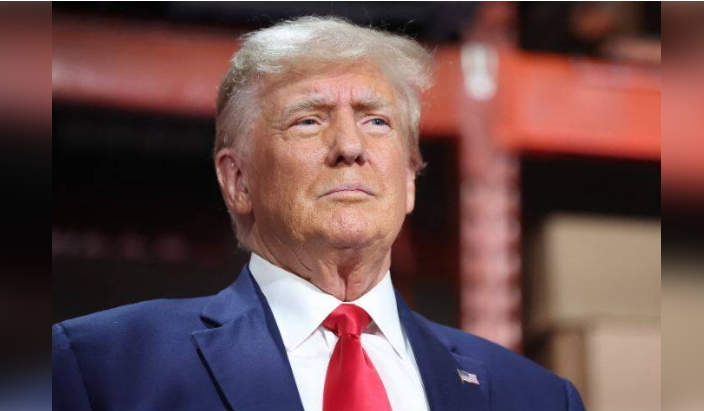Washington (Web Desk): The recent decision by US President Donald Trump to dismiss several senior military leaders, including General CQ Brown, has sparked intense criticism from Democratic lawmakers and former national security leaders.
Many are accusing the move of being politically motivated, with concerns that it could erode the integrity of the military’s leadership and threaten the nation’s security. Critics argue that the firings signal to military officials that allegiance to the president, rather than professional judgment or competence, will now determine their positions.
This could lead to a situation where officers fear retribution for not aligning with Trump’s political views, even if they have long records of honorable service.
Senators including Jack Reed and Mazie Hirono have described the decision as dangerous, warning that it undermines military readiness and the rule of law. They fear that the dismissals will create an atmosphere of fear within the armed forces, where leaders might be reluctant to speak truthfully or push back against orders that go against military values or the law.
Congressman Seth Moulton expressed similar concerns, condemning the move as a blatant effort to politicize the military. He argued that such actions resemble the tactics of authoritarian regimes, where leaders dismiss those who disagree with them.
While Trump and his Defense Secretary Pete Hegseth have defended the firings, citing the need for a change in leadership to refocus the military on its core mission, their justification has not convinced many critics.
Hegseth, known for his vocal opposition to diversity initiatives within the military, has long expressed dissatisfaction with General Brown, particularly in relation to efforts promoting diversity, equity, and inclusion.
Trump and his allies argue that the military should abandon what they see as a focus on political correctness, instead concentrating on enhancing combat readiness.
Supporters of the firings see them as a necessary step toward restoring what they call the military’s core mission.
Some, including Republican lawmakers like Senator Jim Banks, believe that eliminating “woke” influences will make the military stronger and more focused on its primary objective—winning wars.
However, this stance has been met with harsh criticism from those who view it as an attack on the principles of merit and professionalism that should guide military leadership.
The firings have raised particular concern about the dismissal of the military’s top legal advisors, who typically serve across different administrations without regard to political party.
Critics worry that replacing these key legal figures with individuals who are more sympathetic to the president’s views could compromise the independence of military legal advice. This, they argue, could lead to the military being more vulnerable to political interference and undermine its ability to function as an impartial institution.
The controversy has intensified with Trump’s nomination of retired Air Force Lt. Gen. Dan "Razin" Caine to replace General Brown.
While it is not unusual for a retired officer to be brought back for a senior role, Caine’s nomination has raised eyebrows due to his lack of experience as a four-star officer, traditionally the rank required for the role of Chairman of the Joint Chiefs of Staff.
Some are questioning whether this move is part of a broader pattern of undermining the military’s professionalism in favour of personal loyalty to the president.
As this situation unfolds, former military leaders and bipartisan groups have voiced alarm, warning that these actions will weaken the military’s ability to function effectively and damage its reputation both at home and abroad.
They stress the importance of maintaining a military that operates independently of political influence, where leaders can provide candid advice and make decisions based on what is best for national security, not political gain.
Many fear that the ongoing purges will create a ripple effect throughout the ranks, making future military leaders hesitant to challenge unlawful orders or speak out against the administration.


